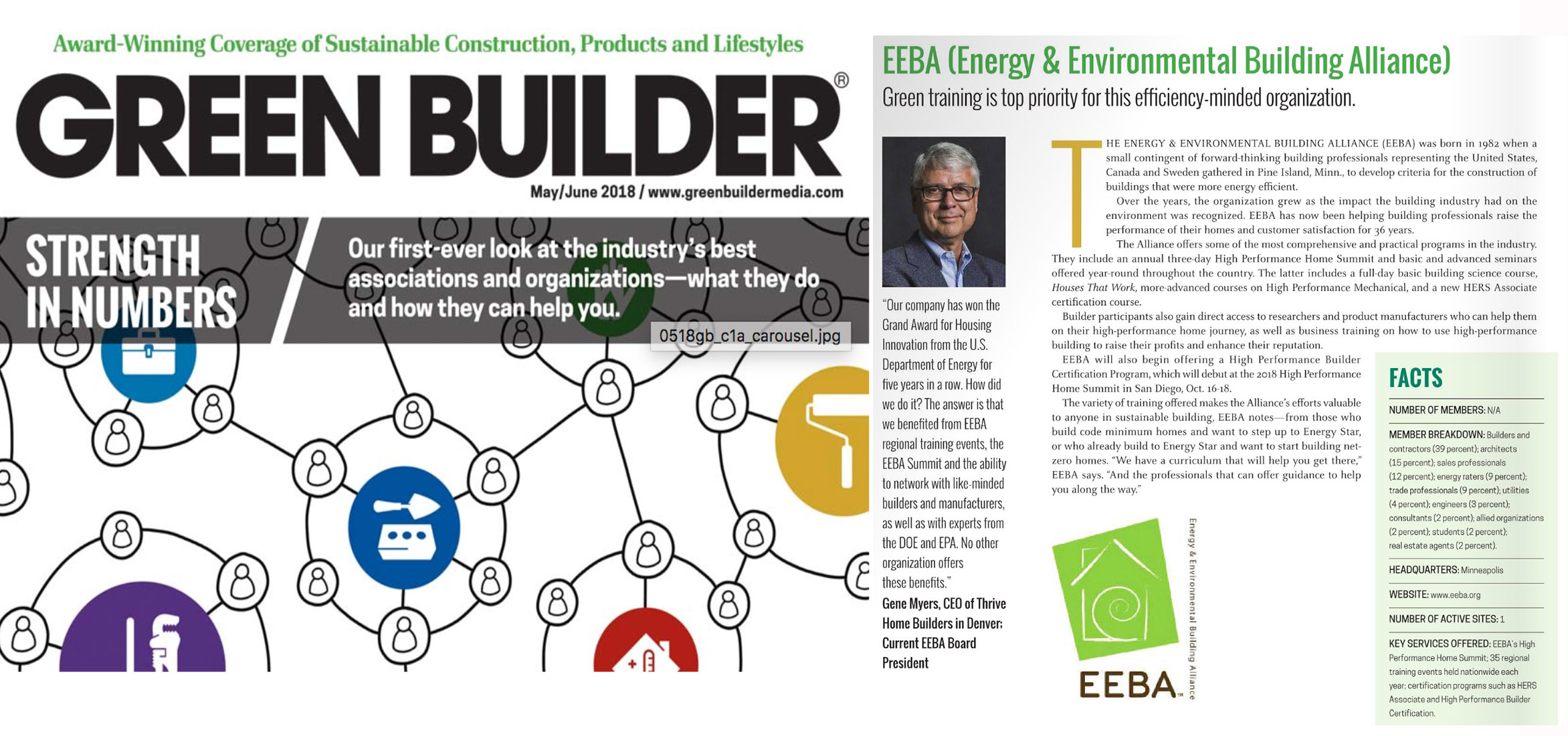
Green Builder Media, the leading media company in the North American residential building industry focused exclusively on green building and responsible growth, recently included EEBA as one of the nation’s leading Industry Associations. Featured in the May/June 2018 issue, EEBA is lauded for its “comprehensive and practical programs” offered at both their annual High Performance Home Summit, and various educational training held throughout the year around the country.
One of those programs is the HERS Associate training course which has already been well-attended in Atlanta, Raleigh, and Denver earlier in the year. The next HERS Associate training courses will be held in Dallas on August 7th, Boston on September 25th, and Baltimore, MD on September 26, 2018. For more information on the time and location, or to sign-up, email info@eeba.org.
In the article, Gene Myers, CEO of Thrive Home Builders in Denver, explains how his company has “benefitted from EEBA regional training...
read more